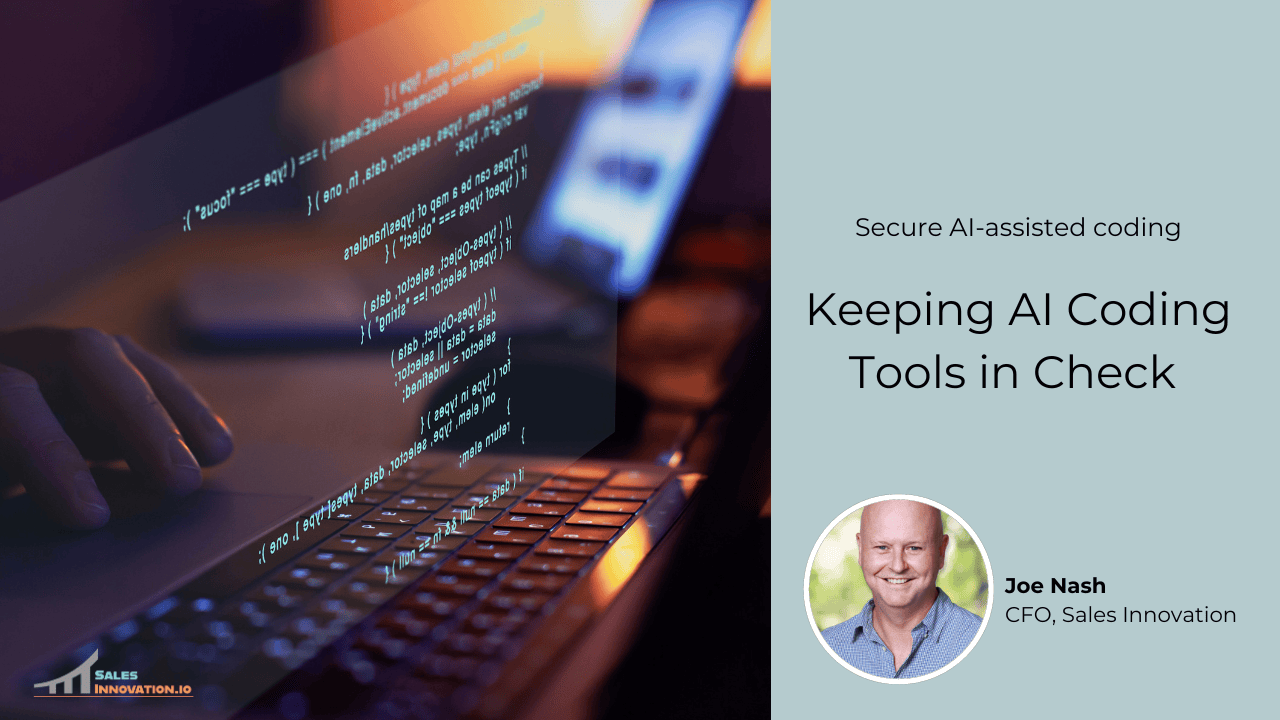
AI-Assisted Coding Done Right: Secure Coding with Effective Governance Strategies
By Joe Nash, CFO, Sales Innovation
Previously, we explored the potential and benefits of AI-assisted coding tools in empowering software engineering teams and enhancing the software development process. Software engineering teams will evaluate and select AI coding tools on their merits - functions, features and benefits etc. From a corporate governance perspective there are other considerations. This follow-on piece looks into critical aspects that enterprises need to consider when adopting AI coding solutions, with a particular focus on privacy, security, compliance and personalisation.
Privacy: AI-assisted coding platforms must prioritise data protection and ensure that proprietary information remains secure. Select tools that operate within the enterprise's secure firewall, eliminating the risk of data exposure. Look for solutions that offer a zero data retention policy, ensuring your code is 100% private, protected, and secure. It's crucial that these tools never retain your data or use it to train their general models. This not only safeguards intellectual property but also helps maintain regulatory compliance, a crucial consideration for industries with stringent data privacy regulations.
Secure Environments: To address security concerns, AI-assisted coding must be implemented within secure, firewall-protected environments. This ensures that all coding activity complies with internal and external security protocols. When selecting an AI coding tool, verify that its models are trained exclusively on permissively licensed open-source code. This transparency allows you to review the code libraries used in training, providing an additional layer of trust and security. By keeping AI tools within the firewall and using those with verifiable training data, companies can maintain strict control over their codebase while still reaping the benefits of accelerated development.
The Compliance Conundrum: Compliance is crucial for safeguarding data, maintaining security, and ensuring that software meets legal and regulatory standards. Yet, the rigorous processes required to achieve compliance can often lead to bottlenecks in development. Strict protocols, exhaustive documentation, and prolonged approval cycles mean that developers spend more time navigating bureaucratic hurdles than engaging in creative problem-solving.
Personalisation: Every enterprise has unique requirements, workflows, and development environments. Personalisation capabilities allow companies to tailor the tool to their specific needs. Enterprises can customise the tool to fit their development environments, select preferred large language models (LLM), and integrate it with their existing IDE stack and software development lifecycle. Moreover, the better tools like Tabnine can be adapted for coaching and mentoring developers, providing personalized feedback and suggestions based on the company's coding standards and best practices. This not only accelerates the onboarding process for new developers but also helps maintain consistency and quality across the codebase.
The software engineers will have their preferences for AI coding tools, based on various factors. While the management have governance responsibilities over corporate assets. Ensuring the preferred AI tools provide the appropriate levels of privacy, security, compliance and personalisation is a win/win for the enterprise. AI Coding tools like Tabnine have successfully addressed the preferences and needs of developers and governance by harnessing the power of AI to streamline development processes while addressing security, privacy, personalisation and compliance needs.
One tool offering AI-assisted coding within the Firewall is Tabnine. Sales Innovation is very proud to represent Tabnine in Asia. Feel free to reach out to me or my team if you want to know more.


